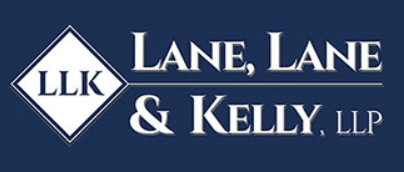The holiday season is a time of joy, connection, and reflection, as families and loved ones come together to celebrate. It’s also a time to think about the future, making it the perfect moment to finalize or update your estate plan. As you begin planning for your new year's resolutions, consider how estate planning can bring you the ultimate peace of mind. Here’s why creating an estate plan should be at the top of your resolution list and how it benefits you and your family for years to come.
The Importance of Estate Planning
Having an estate plan is about more than just dividing your assets after you pass, it’s about creating clarity, reducing stress for your loved ones, and protecting your legacy. Without an estate plan in place, should you become incapacitated, you will lose full control as to who can step in to manage your affairs, who can make medical decisions on your behalf, and who can make financial or legal decisions on your behalf. If you die without an estate plan in place, and more specifically without an executed Will, then you will lose full control as to who will inherit your asset. If you die without a Will, your assets would be distributed in accordance with Massachusetts Intestacy Laws as determined by Massachusetts Uniform Probate Code (G. L. c. 190B). For a full breakdown of Massachusetts Intestacy Laws and what happens if you die without a Will, please read our full legal blog here.
An estate plan is the perfect gift to you and your loved ones, as it eliminates any ambiguity surrounding your wishes in the event something happens to you. Additionally, it will eliminate unnecessary stress, confusion, and costs for your loved ones when settling your estate following your death. Additional benefits of a comprehensive estate plan include:
- Protecting Your Loved Ones: Outline a guardian(s) and conservator(s) for your minor children, ensuring they are cared for according to your wishes. Not only that, but you can include detailed instructions specifying your preferences as to where the children will live, their school system, etc. to minimize any potential disruption to the daily lives of your children. If you have adult children, you can ensure they are adequately provided for in a way the streamlines the distribution of your assets, without unnecessary delays and expenses.
- Reduce Stress: Help your family avoid disputes or uncertainty during a challenging time. An estate plan gives your family a clear roadmap to follow when it comes to managing and distributing your assets when you are gone.
- Minimize Costs: Reduce the financial burden on your loved ones. If you die without a Will, your estate will have to go through the Massachusetts probate process if you own assets in your individual name. The Probate court process can be lengthy and very costly, and open up the estate to additional costs such as real estate taxes, carrying/maintenance costs, and legal fees.
The Role of a Will and the Probate Process
Creating a Will allows you to outline your wishes as it relates to your assets, and who will carry out the administration of your estate. In your Will, you will outline:
- Who will serve as Personal Representative. The Personal Representative is responsible for carrying out the terms of your Will.
- Guardianship and Conservatorship choices for any minor children, along with your desired living conditions as mentioned above.
- Most notably, a Will outlines your wishes as it relates to the distribution of your assets. You can leave your assets to anyone you wish as opposed to your assets being subject to Massachusetts Intestacy laws, which only allow inheritance to blood relatives based on a very selective hierarchy. A Will allows you to leave your assets to friends, more distant family members, charitable organizations, or any non-profit organizations of your choosing.
However, it’s important to understand that probate can be a costly and lengthy process. Carrying costs, such as property taxes, utilities, and insurance on real estate, can accumulate during the process. It is not uncommon for the probate process to take anywhere from 6-24 months, which can result in substantial costs to the estate before finally distributing assets. For a full overview of the Massachusetts Probate process, click here to read our legal blog. Proper planning can help mitigate these delays and expenses.
The Benefits of a Revocable Trust
A Trust is a fiduciary arrangement whereby the Settlor (sometimes referred to as the Grantor, Donor, or Trustor) gives the Trustee the right to hold and manage assets for a specific person or persons (the Beneficiaries). For a full overview of the different parties to a Trust and your entire estate plan, you can read our full legal blog here: Who’s Who of Estate Planning. A Trust is a versatile legal arrangement that offers several advantages, such as:
- Avoid Probate: By placing your assets in a Trust, they bypass the probate process entirely, which will streamline the transfer of assets and minimize costs substantially.
- Maintain Privacy: When a Will gets filed with the probate court, it becomes a public record, which means anyone can view its contents. A Trust guarantees your privacy and ensures that the distributions of your estate, your named beneficiaries, and all other components of your Trust stay out of the public domain.
- Control Distributions: A Trust allows you to specify the ages, milestones, or conditions under which beneficiaries can receive distributions under the terms of the Trust. This ensures that minor children or financially inexperienced heirs don’t receive a large sum of money prematurely.
- For example, if you passed away with a 15-year-old child, no surviving spouse, and no Will, then your child would receive the full value of your estate on their eighteenth birthday. Compare this to the same scenario, but you had created a Trust before passing. Now, the named Trustee will act with a fiduciary responsibility to ensure that your assets are preserved for as long as possible. Most Trusts are structured so the Trustee can make discretionary distributions (for the beneficiary’s health, education, maintenance, and support), before ultimately distributing the remaining assets at an age specified in the Trust, which is frequently 25 or 30 depending on your circumstances and preferences.
As the name implies, Revocable Trusts allow you, the Settlor, to retain full control over the Trust assets during your lifetime. You can revoke or amend the Trust at any time before your death. This provides you with the utmost flexibility to make changes to your plan as circumstances evolve and relationships change. For a full breakdown of the Pros and Cons of Trusts, and the different types of Trusts, you can read our full legal blog post here.
Essential Documents for Healthcare and Financial Decisions
Many people falsely assume that the only components to an estate plan are a Will, and potentially a Trust. However, a comprehensive estate plan will also address the naming of medical and financial directives to step in and make important decisions should you become incapacitated. In addition to a Will and Trust, these documents are critical components of any estate plan:
- Healthcare Proxy: Appoints someone to make medical decisions on your behalf if you are incapacitated. This allows a trusted family member or friend to step into your shoes and follow your instructions in making informed medical decisions should you be unable to make such decisions on your own.
- HIPPA Authorization for Release: Under the Health Insurance Portability and Accountability Act (“HIPAA”) passed by Congress, valid under 45 C.F.R. Chapter 164, you can name specific individuals that can legally obtain access to your medical records and speak with your doctors in an effort to make informed medical decisions should you be unable to do so yourself.
- Durable Power of Attorney: Grants a trusted individual (known as the Attorney-in-fact) the authority to manage your financial and legal affairs if you become incapacitated during your lifetime. The Durable Power of Attorney (DPOA) document will outline specific powers the Attorney-in-fact is authorized to carry out. These powers typically include things like paying bills, paying the mortgage/rent, opening or closing bank accounts, making investment decisions, buying or selling property, etc.
These documents ensure your loved ones can act on your behalf without the need for court intervention during a crisis.
Why the End of the Year is the Perfect Time to Get Your Affairs in Order
As the year comes to a close, there’s no better time to finalize your estate plan and ensure your affairs are in order. The holiday season brings loved ones together, where we create cherished memories and carry-on long-established family traditions. It’s also the perfect opportunity to reflect on the future and make meaningful decisions that will protect your family for generations to come. By putting an estate plan in place now, you can provide clarity, security, and peace of mind for yourself and your loved ones. Creating new year’s resolutions grants us the opportunity to set purposeful goals to better ourselves for the future. There is no better resolution than finalizing an estate plan for you and your family to set a strong foundation for not only 2025, but for years and generations to come.
Take the First Step
At Lane, Lane & Kelly, we have been guiding families in Massachusetts through the estate planning process since 1938. Whether you need to create your own comprehensive plan or update an existing one, our experienced team is here to provide the personalized attention and support that you deserve. Winning the designation of best Law Firm on the South Shore in 2024 by the South Shore Community Choice Awards, contact us today to make estate planning your best resolution for the new year and beyond. Together, we’ll create a plan that protects your family and your legacy.
This blog is made available for educational purposes only as well as to give you general information and a general understanding of the law, not to provide specific legal advice. By reading this blog you understand that there is no attorney client relationship between you and Lane, Lane & Kelly, LLP.

Matthew B. Lane
Matthew is an Attorney at Lane, Lane & Kelly, LLP. Matthew attended Rensselaer Polytechnic Institute obtaining his undergraduate degree in Business & Finance in 2016, graduating with Magna Cum Laude honors, and later graduated from Suffolk University Law School in May 2025 with Cum Laude Honors. Matthew primarily practices in the areas of Estate Planning, Probate & Trust Administration, and Real Estate Conveyancing.


